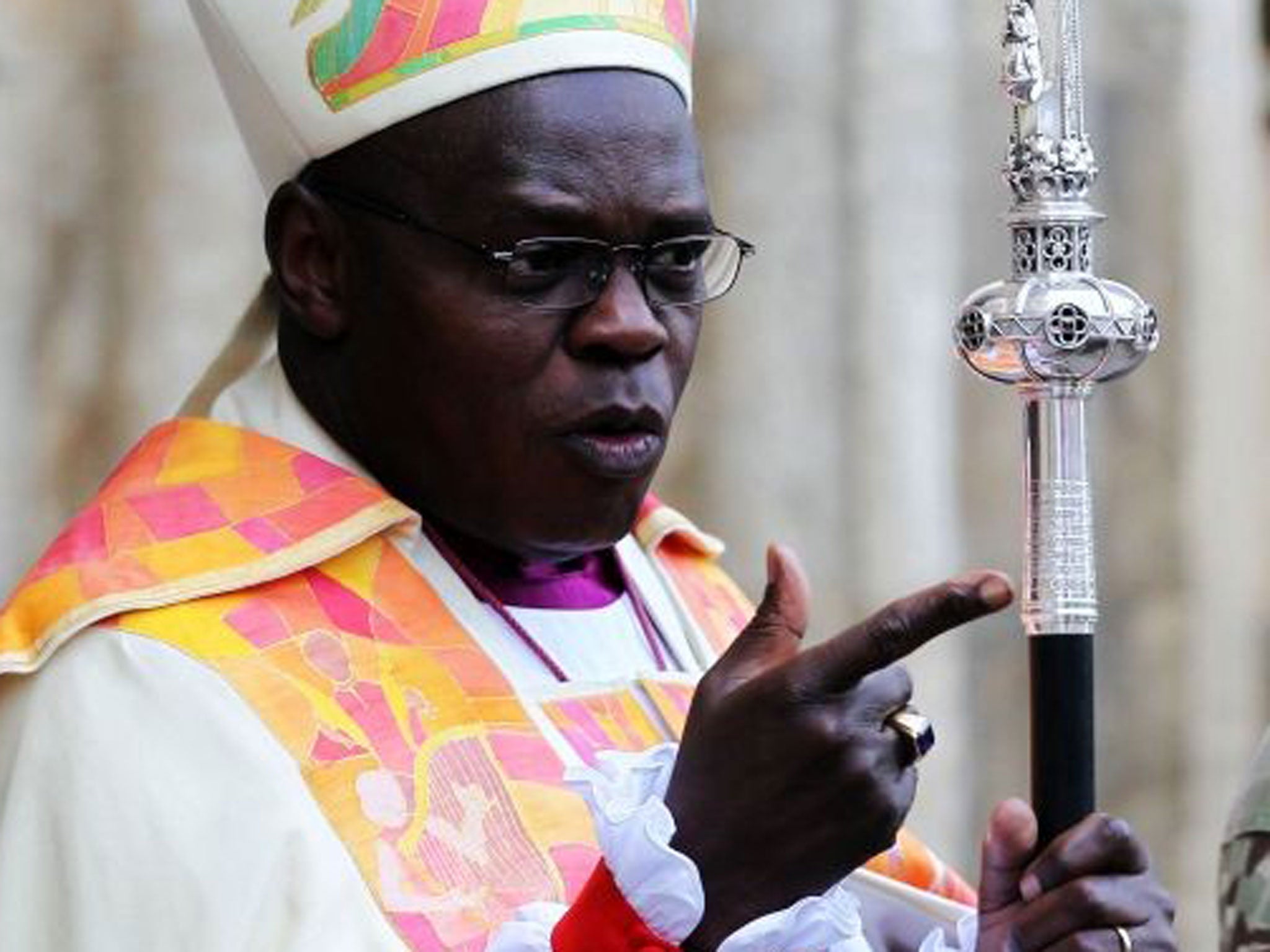Rwanda deal puts asylum seekers at risk of ‘climate threats’, Christian Aid says
Former archbishop John Sentamu calls deal a ‘shameful moral failure’ and ‘abhorrent’ as High Court to give ruling

Your support helps us to tell the story
From reproductive rights to climate change to Big Tech, The Independent is on the ground when the story is developing. Whether it's investigating the financials of Elon Musk's pro-Trump PAC or producing our latest documentary, 'The A Word', which shines a light on the American women fighting for reproductive rights, we know how important it is to parse out the facts from the messaging.
At such a critical moment in US history, we need reporters on the ground. Your donation allows us to keep sending journalists to speak to both sides of the story.
The Independent is trusted by Americans across the entire political spectrum. And unlike many other quality news outlets, we choose not to lock Americans out of our reporting and analysis with paywalls. We believe quality journalism should be available to everyone, paid for by those who can afford it.
Your support makes all the difference.Sending asylum seekers to Rwanda puts them at risk of “climate threats” the government failed to consider when doing its deal with the country, a report has found.
Research by Christian Aid said a report published by the Foreign Office earlier this year spoke of rising temperatures, flooding, food insecurity and increased disease transmission.
The aid agency asked the Home Office if it had carried out a risk assessment relating to climate in relation to the £120m migration and economic development partnership signed in April, and was told that the department “does not hold the information requested”.
The former Archbishop of York and chair of Christian Aid, Dr John Sentamu, called the Rwanda deal a “shameful moral failure” of the British government, and described it as “abhorrent”.
“This may be the home secretary’s dream, but it is a nightmare for those refugees who have come to the UK seeking sanctuary from persecution,” he added.
“Rwanda is going to become an increasingly inhospitable place in the coming decades due to climate change, as the government’s own findings show.
“The fact that the Home Office hasn’t even done a risk assessment on the climate dangers posed to refugees it plans to deport there reveals its lack of care and concern for their wellbeing.”
The Independent has learnt that the Home Office drew up internal “risk registers” on the deal, which normally outline potential legal breaches and planned remedial action.
It refused a freedom of information request for the documents, claiming that releasing them would not be in the public interest because it could damage the UK’s relationship with Rwanda.
An official letter said: “Disclosing the information would provide details of the government research, analysis and assessment on Rwanda as a partner in immigration policy.
“This would be likely to prejudice the UK’s international relations with Rwanda. Disclosure would be likely to lead to incorrect assumptions and misconceptions of Rwanda and damage the UK’s international relations.”
The Home Office said it was “important that the UK ... avoids giving offence to other nations and retains the trust of our international partners”.
It also cited an exemption for information that, if released, would affect the “free and frank exchange of views” in government and “inhibit the ability of Home Office officials and others to express themselves openly, honestly and completely, or to explore extreme options”.
It came as High Court judges were set to rule on two major legal challenges over the deal, which argued that the policy was unlawful and that Rwanda was not a safe country to receive asylum seekers who were being forcibly deported from the UK.
The cases caused the Home Office to pause the scheme, after an attempted flight to Kigali in June was grounded following last-minute injunctions by the European Court of Human Rights.
Prime minister Rishi Sunak told parliament last week that he was still committed to the programme, saying: “When legal proceedings conclude on our migration and economic development partnership, we will restart the first flights to Rwanda, so that those who are here illegally and cannot be returned to their home country can build a new life there.”
The home secretary, Suella Braverman, has previously said that she expected the High Court ruling to be appealed, whatever the outcome, and that the case could go to the Supreme Court.
“Unfortunately we’ve got to let that play out,” she told an event at the Conservative Party conference in October.
The case has triggered the disclosure of thousands of government documents, which showed that Rwanda was initially ruled out of potential countries considered for a migration partnership but was put back into the pool after Boris Johnson and Priti Patel showed “particular interest”.
Government officials warned of “significant human rights concerns”, corruption, and an ill-fated deal that saw the disappearance of migrants who had been deported to the country from Israel.
The High Court has heard that a draft version of Home Office guidance on Rwanda was shared with the country’s government before publication, and that the Rwandan government asked for changes to be made, with a Home Office official then trying to “make it sound more positive”.
A Home Office spokesperson said: “Our ground-breaking Migration Partnership will see individuals who come to the UK illegally and by dangerous and unnecessary means relocated to Rwanda, where they will be supported to rebuild their lives.
“Rwanda is a safe country with a track record of supporting refugees. The UK government already works extensively with the government of Rwanda to help mitigate the impacts of climate change and to develop new green solutions for the future.”



Join our commenting forum
Join thought-provoking conversations, follow other Independent readers and see their replies
Comments